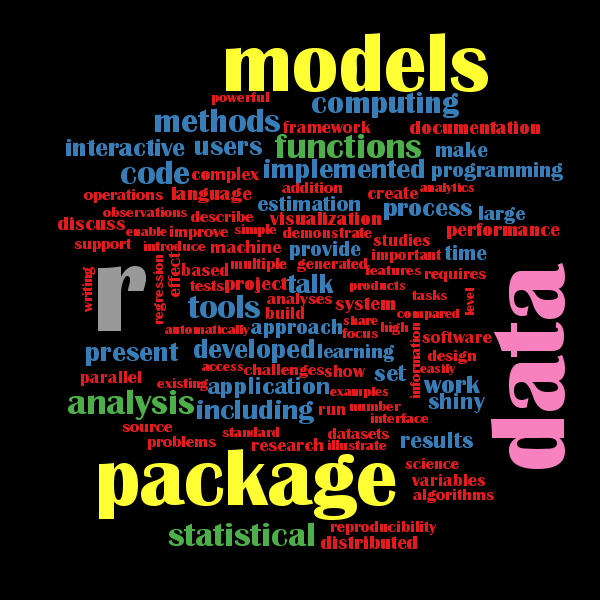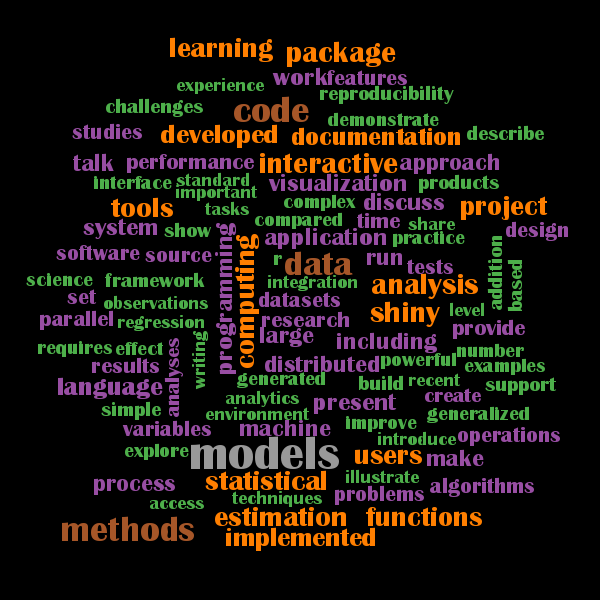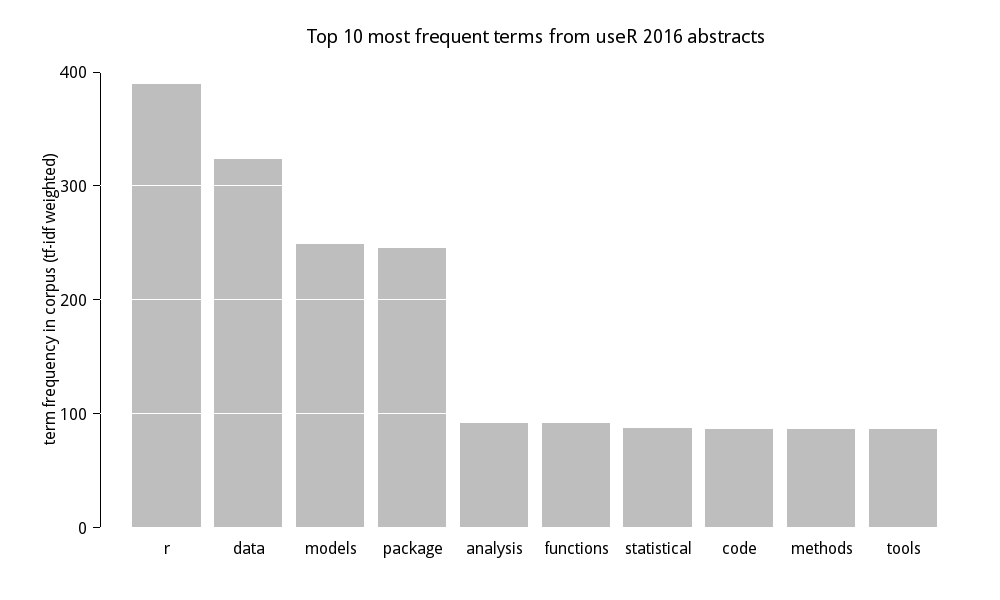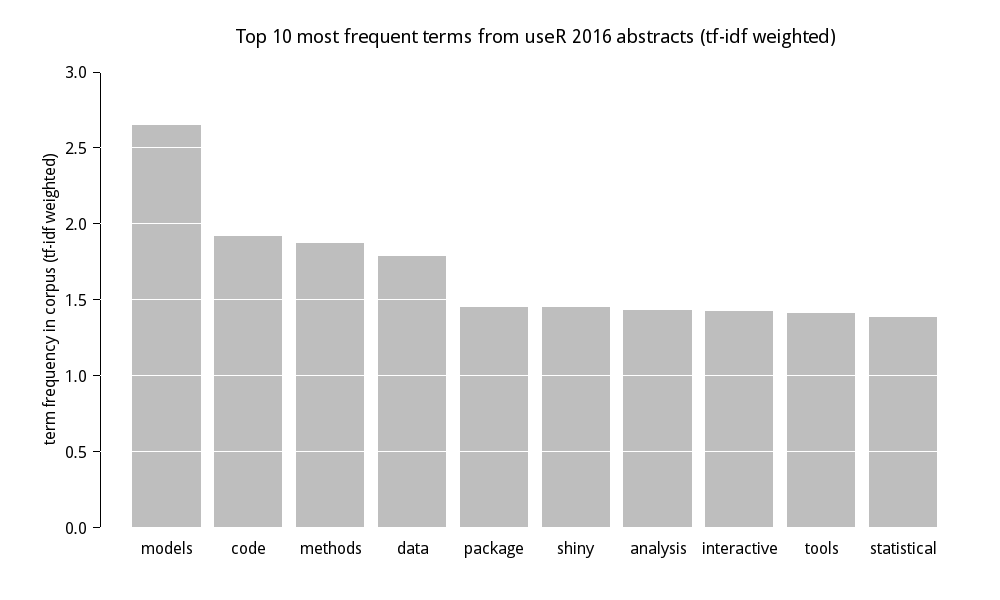From June 27-30 the international R user and developer community will meet in Stanford, California for the useR! 2016 Conference. Right in the heart of Silicon Valley, gripping presentations and talks will cover a broad range of topics from R-related computing issues to general statistical topics. In case you are wondering what the most popular topics will be at this year’s useR!, we can help you out.
Growing anticipation and curiosity drove us to a brief text mining analysis identifying the top keywords of the useR! 2016. We therefore examined the abstracts of the contributed talks (http://schedule.user2016.org/) in R and created two different word clouds illustrating their popularity and significance.

The first word cloud is based only on frequency of mentions of specific terms. Obviously, R is one of the most frequently used words in the abstracts, which is hardly surprising for this kind of Event.

The second word cloud additionally applied a tf-idf weighting in order to reflect the importance of a word by, roughly speaking taking into account the fraction of abstracts in which the term occurs. Therefore, the term R appears much smaller in the weighted word cloud than in the unweighted.
We also generated two bar charts illustrating the findings:


This text mining analysis provides a good overview of the top terms at the upcoming useR! 2016. The results might not be surprising. However, they might make you even more excited about the approaching start of this event.
This way.